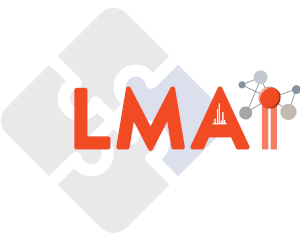EpiLipidNET



Project description:
EpiLipidNET is a pan-European network of scientists, clinicians, scientific societies, and enterprises aiming to create a hub of excellence with the focus on integrative EpiLipidomics research. This network is funded by
European Cooperation in Science and Technology and is an open community to all with an interest in (epi)lipids and related technologies. EpiLipidNET community aims to boost multidisciplinary knowledge and technology transfer, and to foster advanced training of young researchers in all aspects related to lipid research.
(epi)Lipidomics is a fast-developing discipline with a constantly growing number of users, applications and methods. Since 2020 EpiLipidNET actively supports open discussions and knowledge exchange in the areas of bioanalytical and computational technologies, lipid biology and biochemistry, and potential of clinical translations in truly multidisciplinary environment. EpiLipidNET actively supports young researchers and innovators by funding shot term scientific missions (STSMs) allowing to perform research internship in collaborating laboratories within Action network. Furthermore, ITC conference grants scheme within EpiLipidNET supports travel grants to scientific events and meeting.
LMAI team takes an active role in EpiLipidNET networking! Maria is the grant co-PI and serves as a Vice Chair of the EpiLipidNET. Maria, Michele, and Zhixu are also active members of Working Group 2 focusing on “Epilipidomics analysis and data integration strategies”.
Michele and Patricia are active members of EpiLipidNET Young Researchers and Innovators (YRI) Committee and in 2022 Patricia was elected as YRI Committee Coordinator!
EpiLipidNET networking already resulted in several joint publications with groups all over the world!
☆ Ni Z, Wölk M, Jukes G, Mendivelso Espinosa K, Ahrends R, Aimo L, Alvarez-Jarreta J, Andrews S, Andrews R, Bridge A, Clair GC, Conroy MJ, Fahy E, Gaud C, Goracci L, Hartler J, Hoffmann N, Kopczyinki D, Korf A, Lopez-Clavijo AF, Malik A, Ackerman JM, Molenaar MR, O’Donovan C, Pluskal T, Shevchenko A, Slenter D, Siuzdak G, Kutmon M, Tsugawa H, Willighagen EL, Xia J, O’Donnell VB and Fedorova M. (2023) Guiding the choice of informatics software and tools for lipidomics biomedical research applications. Nat Methods. 20(2):193-204. doi: 10.1038/s41592-022-01710-0.
☆ Damiani T, Bonciarelli S, Thallinger GG, Koehler N, Krettler CA, Salihoğlu AK, Korf A, Pauling JK, Pluskal T, Ni Z, Goracci L. (2023) Software and Computational Tools for LC-MS-Based Epilipidomics: Challenges and Solutions. Anal Chem. 95(1):287-303. doi: 10.1021/acs.analchem.2c04406
☆ Criscuolo A, Nepachalovich P, Garcia-Del Rio DF, Lange M, Ni Z, Baroni M, Cruciani G, Goracci L, Blüher M, Fedorova M. (2022) Analytical and computational workflow for in-depth analysis of oxidized complex lipids in blood plasma. Nat Commun. 13:6547.
☆ Sochorova M, Vavrova K, Fedorova M, Ni Z, Slenter D, Kutmon M, Willighagen EL, Letsiou S, Töröcsik D, Marchetti-Deschmann, Zoratto S, Kremslehner Ch, Gruber F. (2022) Research techniques Made simple: Lipidomics analysis in skin research. Journal of Investigative Dermatology, 142, 4-11.
☆ Gladine C and Fedorova M. (2021) The clinical translation of eicosanoids and other oxylipins, although challenging, should be actively pursued. Journal of Mass Spectrometry and Advances in the Clinical Lab. 21: 27-30.
In 2022, together with The Dresden International Graduate School for Biomedicine and Bioengineering ( DIGS-BB) LMAI team organized EpiLipidNET Training School on “Lipid Metabolism: From Biochemistry to Clinical Translations” which we hosted in Dresden from May 9 -13th 2022, Dresden.
School provided insights into the overarching role of lipids in metabolism, health and disease by covering lipid biochemistry, cell biology, biomedical significance and clinical transitions. It included invited lectures from international experts in the field of lipid biochemistry, metabolism, lipidomics, and clinical translations. During hands-on sessions in seven different laboratories at Dresden Campus participants were introduced into new technologies in the fields of mass spectrometry based lipidomics, lipid-protein interactions, microscopy imaging of lipid trafficking, and lipid biophysics.

Short Term Scientific Missions (STSMs)
By using amazing networking tool Short Term Scientific Missions (STSMs) within EpiLipidNET,
LMAI team got new experiences and shared our expertise with many researchers!
STSM from LMAI
DAISY Lab in Perugia
Zhixu Ni used Virtual Mobility Grant “Development of interface between LPPtiger and Lipostar 2 to improve the epilipidome profiling workflow” (1 – 30.09.2021) to work with Stefano Bonciarelli from DAISY Lab in Perugia to combine our LPPtiger2 and Lipostar2 in one workflow for accurate but also high-throughput identification of oxidized lipids.
Tomáš Pluskal Lab in Prague
In March 2023 Zhixu Ni went to Prag to the lab of Tomáš Pluskal at Institute of Organic Chemistry and Biochemistry of the CAS where he work on the project “Machine learning methods to define functional lipid collectives from LC-MS” together with Raman Samusevich.
STSM to LMAI
Katyeny Manuela Da Silva
In April-May 2022 Katyeny Manuela Da Silva form University of Antwerp, Belgium, the group of Alexander L.N. Van Nuijs, was working with us on the project “Implementation of multidimensional analytical techniques to characterize oxidized lipids”
Thomai Mouskeftara
In July-September 2022 Thomai Mouskeftara from the Medical School of Aristotle University, Thessaloniki, Greece, the group of Georgios Theodoridis and Helen Gika, was looking into “EpiLipidomic profiling of oxidized complex lipids in blood serum of patients with coronary artery disease (CAD)”
Philipp Jokesch
From June till August 2023, Philipp Jokesch from Institute of Pharmaceutical Sciences, University of Graz, Austria, the group of Valery Bochkov is working on the project “Oxylipidomics as a tool for identification of defense mechanisms neutralizing oxidized phospholipids”.
Current projects:
Understanding dynamics of lipid metabolism and oxidation in ferroptotic cell death programme
Ferroptosis as a common underlying pathomechanism in tissue ischemia/reperfusion injury
Pan-European Network in Lipidomics and EpiLipidomcis
Dysregulated systemic release of metabolic and bioactive lipids along hepatocyte-VLDL axis
Extension of the Lipidomics technology platform to include targeted high-throughput phenotyping of lipid metabolism and its remodelling
Apply machine learning and deep learning methods to (epi)lipidomics data analysis




